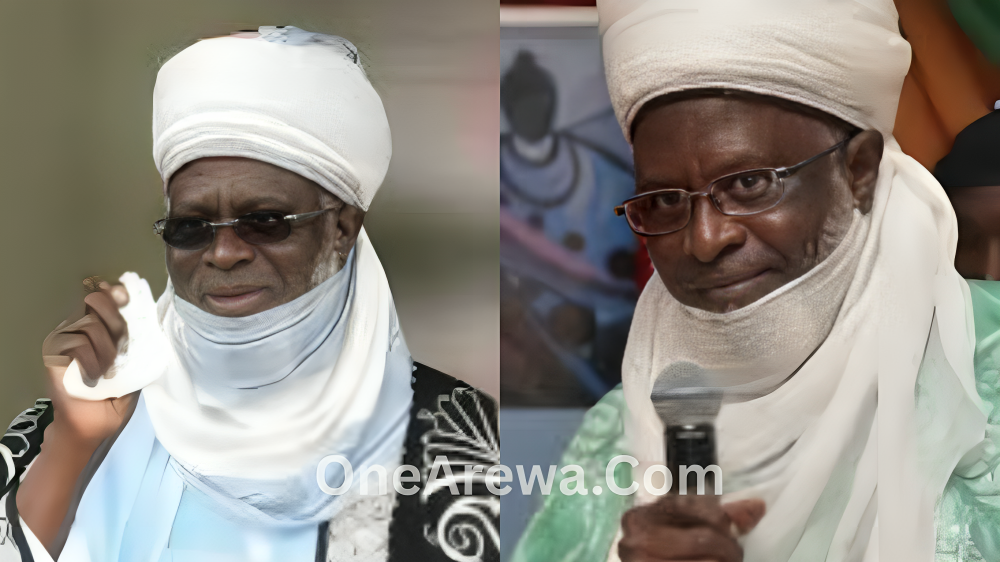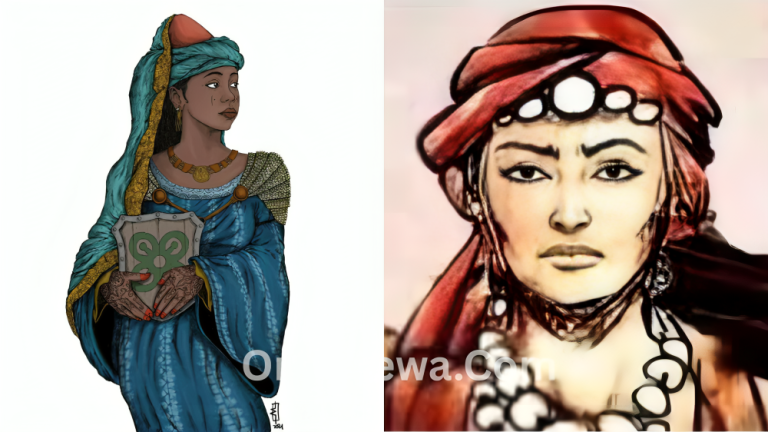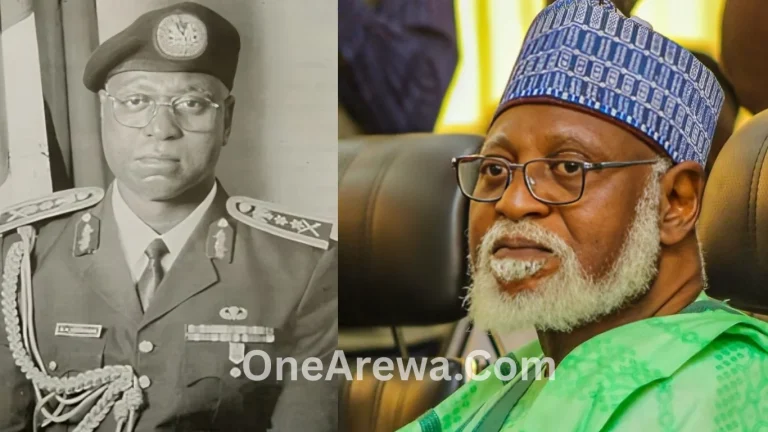Alhaji Mohammed Awwal Ibrahim: From Governor to Emir of Suleja – A Full Biography
Alhaji Mohammed Awwal Ibrahim: From Governor to Emir of Suleja – A Full Biography
Alhaji Mohammed Awwal Ibrahim (born September 8, 1941) is a Nigerian traditional ruler and politician who served as the first elected Governor of Niger State from October 1979 to December 1983 under the National Party of Nigeria (NPN).
After his tenure, he was convicted of abuse of power in 1984 and banned from politics in 1986. In 1993, he became the Emir of Suleja but was deposed in 1994 by the military government.
He was restored to the throne in January 2000, though his reinstatement triggered violent clashes.
In 2001, he was awarded the Commander of the Order of the Niger (CON) and later chaired the Niger State Committee on Reformation of Almajirci in 2010.
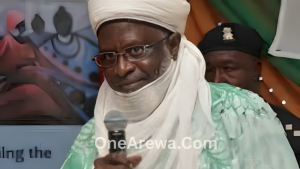
Alhaji Mohammed Awwal Ibrahim Wiki Profile
| Category | Details |
|---|---|
| Full Name | Alhaji Mohammed Awwal Ibrahim |
| Date of Birth | September 8, 1941 |
| Place of Birth | Abuja (now Suleja), Niger State, Nigeria |
| Political Affiliation | National Party of Nigeria (NPN) |
| Education | Provincial Secondary School, Bida (1956–1961); School for Arabic Studies, Kano; Bachelor’s in English (Abdullahi Bayero College, 1967); Master’s (1970) |
| Academic Career | Lecturer at Ahmadu Bello University (1967); Acting Registrar at Bayero University Kano; Executive Secretary of the Center for Cultural Studies (1973–1975) |
| Administrative Career | Administrator in Niger State (1976–1979); Permanent Secretary for Local Government |
| Political Career | First elected Governor of Niger State (Oct 1979 – Dec 1983); convicted and barred from office in mid-1980s |
| Traditional Leadership | Emir of Suleja (1993–1994; restored 2000–present) |
| Awards | Commander of the Order of the Niger (CON), 2001 |
| Net Worth | Estimated $5.5 million (2025) |
| Personal Life | Married with children; raised by uncle/father-in-law who was a teacher and education inspector; devout Muslim; active in community development in Minna |
Check Out: Alhaji Faruk Umar Faruk: Everything You Need to Know
Alhaji Mohammed Awwal Ibrahim Age
Alhaji Mohammed Awwal Ibrahim was born on September 8, 1941, which makes him 83 years old as of 2025.
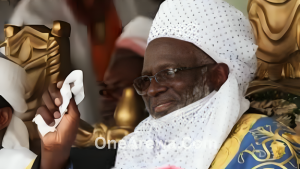
Alhaji Mohammed Awwal Ibrahim’s Early Life and Education
Alhaji Mohammed Awwal Ibrahim was born on September 8, 1941, in Abuja (now Suleja), Niger State.
He attended Provincial Secondary School, Bida, from 1956 to 1961, then furthered his studies at the School for Arabic Studies, Kano.
He earned a Bachelor’s degree in English from Abdullahi Bayero College in 1967, followed by a Master’s degree in 1970. In 1967, he began his academic career as a language lecturer at Ahmadu Bello University and held various administrative roles until 1976.
Alhaji Mohammed Awwal Ibrahim’s Academic and Early Administrative Career
Starting in 1967, Alhaji Mohammed Awwal Ibrahim joined Ahmadu Bello University as a lecturer in languages.
Between 1973 and 1975, he served as the Executive Secretary of the Center for Cultural Studies and also acted as the registrar of Bayero University Kano.
When Niger State was created in 1976, he transferred his services to the new state government, initially as acting Permanent Secretary for Special Duties, before becoming the Permanent Secretary for Local Government, marking his rise in public administration.
Alhaji Mohammed Awwal Ibrahim Political Career: Governor of Niger State (1979–1983)
In 1979, Alhaji Mohammed Awwal Ibrahim left his civil service career to run for Governor of Niger State under the National Party of Nigeria (NPN).
He won the party primary and subsequently the gubernatorial election, becoming the first elected Governor of Niger State.
His tenure lasted from October 1979 to December 1983, during which he faced attempts at impeachment.
His time in office ended when the military coup led by General Muhammadu Buhari overthrew the government.
In 1984, a military tribunal convicted him of abuse of power and corruption, and in 1986, he was barred for life from holding public office or participating in partisan politics.
Ascension to the Throne: Emir of Suleja (1993–1994, 2000–Present)
Alhaji Mohammed Awwal Ibrahim became the Emir (Sarki) of Suleja in 1993, succeeding to the traditional throne of the historic Hausa emirate formerly known as Abuja.
His accession sparked violent riots and property destruction by opponents.
He was deposed on May 10, 1994, by the military regime of General Sani Abacha.
Following Nigeria’s return to democracy, Ibrahim was restored as Emir on January 17, 2000, but his reinstatement again triggered violent clashes, leading to the imposition of a 20-hour curfew and arrests of several leaders.
Since then, he has remained the Emir of Suleja, playing a key traditional and social role in the region.

Alhaji Mohammed Awwal Ibrahim: Contributions and Legacy
Alhaji Mohammed Awwal Ibrahim has significantly influenced both political and traditional spheres in Niger State.
Awarded the prestigious Commander of the Order of the Niger (CON) in September 2001, he has been a prominent advocate for community development, notably highlighting the environmental and social challenges posed by the expansion of the Federal Capital Territory on Suleja.
In 2010, he chaired the Niger State government’s Committee on Reformation of Almajirci, focusing on improving the welfare and education of itinerant Quranic students.
His leadership bridges modern governance and traditional authority, making him a respected figure in Nigerian public life.
Check Out: Magajiya Daurama: The Untold Story of Africa’s First Female Ruler
Alhaji Mohammed Awwal Ibrahim Challenges and Controversies
Alhaji Mohammed Awwal Ibrahim’s career has faced significant challenges and controversies.
His tenure as Governor of Niger State ended abruptly following the 1983 military coup, and he was later convicted in 1984 for abuse of power and corruption, resulting in a lifetime ban from holding public office in 1986.
As Emir of Suleja, his 1993 accession sparked violent riots, and he was deposed in 1994 by the military government of General Sani Abacha.
His restoration in 2000 also triggered violent clashes, requiring government intervention and curfews.
These events reflect the complex political and social tensions surrounding his leadership roles.
Alhaji Mohammed Awwal Ibrahim’s Personal Life and Family
Alhaji Mohammed Awwal Ibrahim was born on September 8, 1941, in Abuja, now known as Suleja, Niger State.
Raised by his uncle and father-in-law, who was a teacher and later an inspector of education, he began his formal education in Bida in 1949.
His father-in-law played a significant role in his upbringing and educational journey.
Ibrahim was married and had children, though specific details about his spouse and children are not publicly documented.
He is a devout Muslim and has been actively involved in community development projects in his hometown of Minna.
Alhaji Mohammed Awwal Ibrahim Net Worth
As of June 2025, estimates place Alhaji Mohammed Awwal Ibrahim’s net worth at approximately $5.5 million.
This estimation is based on publicly available information and social factors, including his roles as a former governor, traditional ruler, and academic.
It’s important to note that such figures are speculative and may not accurately reflect his actual wealth.
Alhaji Mohammed Awwal Ibrahim Recognition
Alhaji Mohammed Awwal Ibrahim has received notable national recognition for his extensive contributions to public service and traditional leadership.
In September 2001, he was honored with the Commander of the Order of the Niger (CON), one of Nigeria’s highest national awards, recognizing his exceptional service to the nation.
Additionally, he has been acknowledged for his efforts in community development and education, particularly his role as chairman of the Niger State government’s Committee on Reformation of Almajirci in 2010
Legacy of Alhaji Mohammed Awwal Ibrahim
Alhaji Mohammed Awwal Ibrahim’s legacy is marked by his significant contributions as both a political leader and a traditional ruler.
As the first elected Governor of Niger State during Nigeria’s Second Republic (1979–1983), he laid foundational governance structures that influenced the state’s development.
Despite facing political challenges and controversies, his leadership is remembered for advancing education and local government administration.
As Emir of Suleja, Ibrahim has played a crucial role in preserving the cultural heritage and history of the ancient Hausa emirate, navigating the complexities brought by the creation of the Federal Capital Territory.
His reign has been pivotal in maintaining peace, fostering community development, and advocating for federal support to address social and environmental challenges caused by urban expansion.
Beyond governance, his involvement in educational reforms, such as chairing the Committee on Reformation of Almajirci, reflects his commitment to social progress.
Awarded the national honor of Commander of the Order of the Niger (CON), Ibrahim’s enduring influence resonates in Niger State and beyond, blending traditional authority with modern governance to shape a resilient and culturally rich society.
Check Out: Hajiya Bilkisu Yusuf: Nigeria’s First Female Newspaper Editor and Feminist Icon
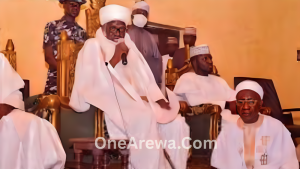
FAQs
1: Who is Alhaji Mohammed Awwal Ibrahim?
He is a Nigerian traditional ruler and politician who served as the first elected Governor of Niger State (1979–1983) and later became the Emir of Suleja.
2: When was he born and where?
He was born on September 8, 1941, in Abuja, which is now called Suleja, Niger State, Nigeria.
3: What was his educational background?
He studied at Provincial Secondary School Bida, School for Arabic Studies Kano, earned a bachelor’s degree in English from Abdullahi Bayero College in 1967, and a master’s degree in 1970.
4: What was his career before politics?
He was an academic and administrator, serving as a lecturer at Ahmadu Bello University and later holding administrative roles at Bayero University Kano and in Niger State civil service.
5: When did he become Governor of Niger State?
He was elected governor in October 1979 on the National Party of Nigeria (NPN) platform and served until December 1983.
6: Why was he removed from office?
He was removed after the military coup in December 1983 and later convicted by a military tribunal for abuse of power and corruption in 1984, which barred him from public office in 1986.
7: When did he become Emir of Suleja?
He first became Emir in 1993, was deposed in 1994 by the military government, then restored in 2000 after Nigeria returned to democracy.
8: What challenges did he face as Emir?
His accession and restoration led to violent clashes and rioting, requiring government intervention and imposition of curfews.
9: What honors has he received?
He was awarded the Commander of the Order of the Niger (CON) in 2001.
10: What is his legacy?
He is remembered for his contributions to education, governance, and traditional leadership, playing a key role in Niger State’s development and the preservation of the Suleja Emirate.
Check Out: Maryam Babangida: The Iconic First Lady Who Transformed Women’s Roles in Nigeria
In conclusion
Alhaji Mohammed Awwal Ibrahim is a distinguished Nigerian leader whose life journey reflects a unique blend of academic excellence, political leadership, and traditional authority.
From his early career as a lecturer and administrator to becoming the first elected governor of Niger State during Nigeria’s Second Republic, he played a significant role in shaping the region’s governance.
Despite facing political challenges and temporary removal from office, his resilience led to his restoration as the Emir of Suleja, where he continues to influence cultural preservation and community development.
Honored with prestigious awards and respected for his dedication, Alhaji Mohammed Awwal Ibrahim’s legacy remains a powerful testament to his enduring impact on both the political and traditional landscapes of Nigeria.
Check Out: Hauwa Ibrahim: Nigeria’s Fearless Human Rights Lawyer and Activist
Check Out: Zaynab Alkali: Trailblazing Nigerian Author and Africa’s First Female Novelist in English
Check Out: Hajiya Gambo Sawaba: The Fearless Nigerian Activist Who Fought for Women’s Rights
